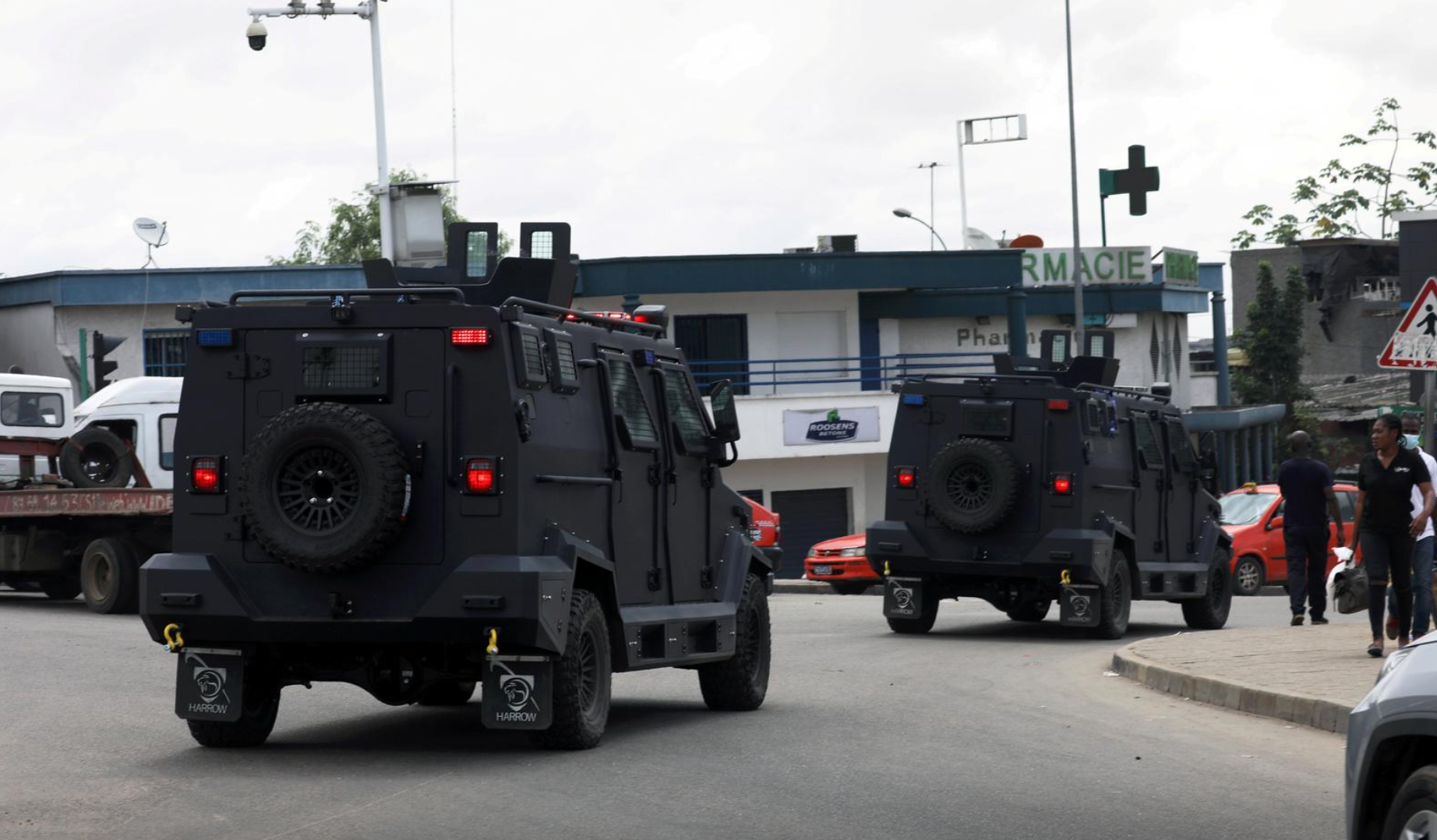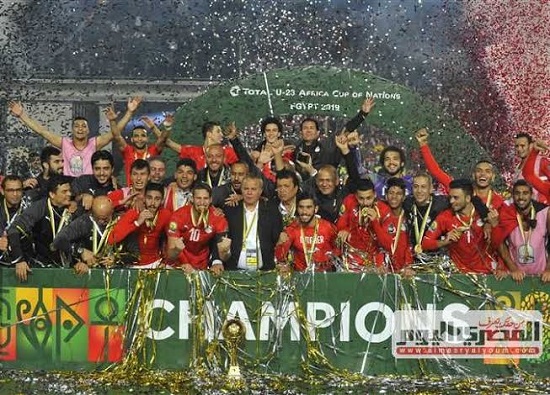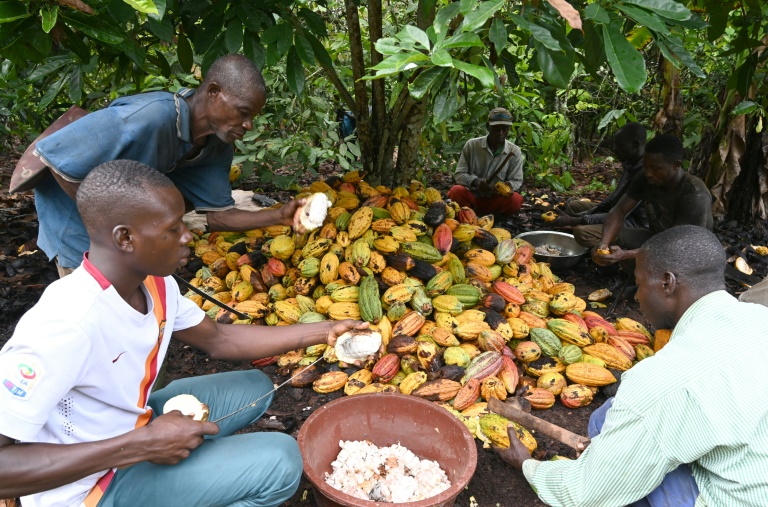Abidjan — Forces supporting Ivory Coast's entrenched strongman broke through the security perimeter imposed around the presidential compound Saturday, firing on French helicopters in an advance that appeared to breathe new life into Laurent Gbagbo's camp, which had been teetering on the brink of defeat.
Residents in the Cocody district of Abidjan reported two hours of explosions and heavy arms fire before sunrise on Saturday and French forces said that helicopters attempting to evacuate diplomats from a residence near the presidential compound were hit by machine gun fire.
No French soldiers were injured in the attack by pro-Gbagbo forces, but the helicopters fired back destroying one armored vehicle, said Cmdr. Frederic Daguillon, the French forces spokesman.
At the Golf Hotel, only a few kilometers from the presidential residence, soldiers loyal to internationally recognized president Alassane Ouattara scrambled to defend the compound, sending out patrols and reporting heavy fighting.
"(Pro-Gbagbo) forces tried to attack the Golf," Felicien Sekongo, a spokesman for Ouattara's Republican forces, told The Associated Press Saturday.
"They pushed into Cocody and Plateau districts but have been stopped and pushed back."
State Department deputy spokesman Mark C. Toner said in a statement the US condemns the new assault.
"It is clear that Gbagbo's attempts at negotiation this week were nothing more than a ruse to regroup and rearm," he said. "Gbagbo's continued attempt to force a result that he could not obtain at the ballot box reveals his callous disregard for the welfare of the Ivoirian people.
In power for a decade, Gbagbo refuses to step aside even though the UN has ruled that he lost the November presidential election to his political rival Ouattara. For the last four months Ouattara has been living out of the Golf Hotel, protected by UN forces as the internationally recognized leader of Ivory Coast.
With fighting ongoing, it was difficult late Saturday to determine whether Gbagbo's soldiers had succeeded in gaining ground or whether the counter attack had failed to turn the tables.
Heavily armed and uniformed soldiers loyal to Gbagbo guarded the state television antenna in the central plateau district Saturday. The station, which has been denounced by the United Nations for broadcasting "lies" and "propaganda" went black when Ouattara's forces entered Abidjan, but it came back on air Friday afternoon. As long as it stays on air, Gbagbo retains a powerful tool to rally his supporters and keep his resistance alive.
Also on Saturday, the UN evacuated 17 British citizens from the British High Commissioner's residence, only steps from Gbagbo's compound. The diplomatic residence, like many others in the neighborhood, had come under fire several times in the last few days.
Gbagbo, who refuses to cede power, has been confined to a bunker in his presidential compound protected and surrounded by his best fighters who reportedly since Thursday have gone without water or electricity. Still, they repelled an initial attempt by Ouattara's forces to push into the residence.
In a televised statement Thursday evening, Ouattara said that his army would not again attempt to enter the compound, but would instead focus on securing the city and wait for Gbagbo to give himself up.
UN peacekeeping director Alain Le Roy said Friday that Gbagbo and his military have used negotiations with the UN this week as a ploy to consolidate power and reinforce his position. He said that an offer by Gbagbo's top three generals to surrender was evidently a "trick" to buy time.
Reports that Gbagbo and his top military men were negotiating a surrender had raised expectations Tuesday that the four-month political standoff in the western African nation was nearing an end.
But Gbagbo strongly denied that he would give up and insisted that the presidency was rightfully his. His advisers denounced last week's French and United Nations helicopter attacks as illegal international interference in Ivory Coast's internal affairs.
"We have always been in a mindset for dialogue," Gbagbo's security adviser Bertrin Kadet said Saturday. "It was them who attacked us. We are simply defending ourselves. We won't die."
After four months of diplomacy, Ouattara gave the go-ahead for a military intervention led by fighters from a former rebel group. They swept across the country, advancing hundreds of kilometers and taking dozens of cities in a matter of days before being held up at the door of Abidjan, Ivory Coast's biggest and most strategically important city.
After a four-day siege, UN and French helicopters, acting under a Security Council resolution, bombarded six heavy arms depots as Ouattara's forces swept into the city Monday.
They arrived at the gate of Gbagbo's compound on Wednesday, but were unable to capture the obstinate president.
"It looked like Ouattara had a strong military capability going forward," said a senior western diplomat who could not be named because of the sensitivity of the matter. "But once they tried to stop the fighting, they showed their weakness."
Ouattara's forces repeatedly said they do not want to kill Gbagbo, a move that would stoke the rage of his supporters. Some 46 percent of Ivorians voted for Gbagbo.
French Defense Minister Gerard Longuet estimates that Gbagbo has some 1000 troops, compared to the 2000-strong force that has been fighting to install Ouattara. This estimate, however, couldn't be independently verified.
As the military standoff dragged on in Abidjan, there are new concerns about tensions erupting into deadly violence in the country's west. The UN said Friday more than 100 bodies have been found in the last 24 hours, and some of the victims had been burned alive.
"The reports that the UN human rights team in (Ivory Coast) are sending back are utterly horrifying," UN human rights chief Navi Pillay said in a statement Friday. "They are finding more bodies everyday."
The UN human rights chief condemned the series of extremely vicious attacks against civilians and cautioned that those atrocities may amount to crimes against humanity.
The UN said peacekeepers and human rights officials discovered about 60 bodies in the western town of Guiglo. The UN human rights agency said another 40 corpses were found lying the street in Blolequin, and many of them had been shot. Fifteen other bodies were found in Duekoue, where violence already has left at least 229 dead in recent weeks.
The postelection violence has left hundreds dead and has forced up to 1 million people to flee.
Military vehicles had to negotiate around bodies lying in the streets of Abidjan Friday. An untold number of fighters and civilians have been killed in the city this past week.
The International Rescue Committee is warning that chaos is permeating this West African nation once split in two by a 2002-2003 civil war, citing an "explosive mix of political, economic and ethnic tension."
Meanwhile, in France, about 200 Gbagbo supporters demonstrated on Paris' Place de la Bastille square against France's involvement in the military standoff in Abidjan — and many criticizing President Nicolas Sarkozy
The crowd chanted — some shouting "Sarkozy, Assassin!" — and waved banners including one that read "Long Live Gbagbo."




